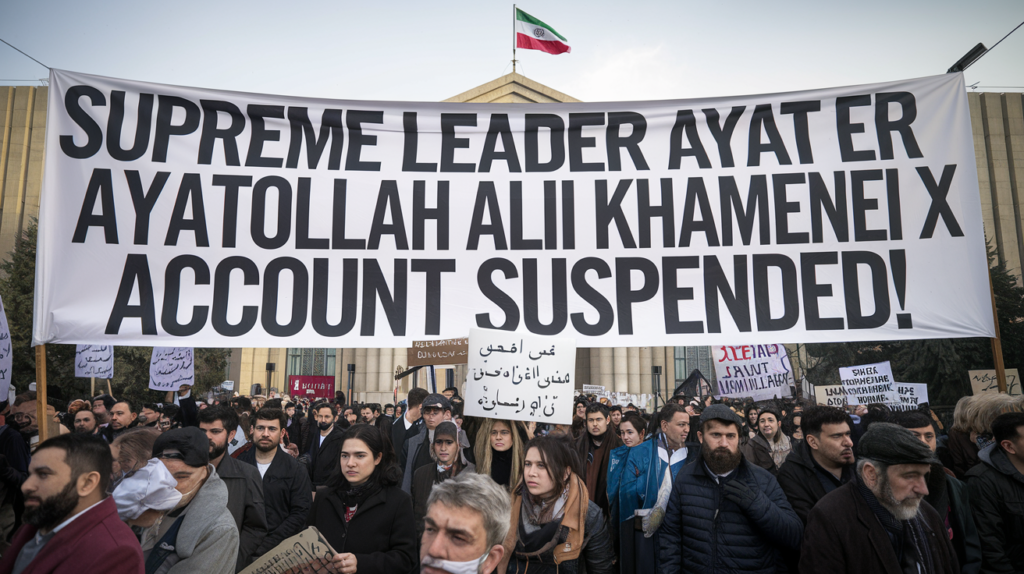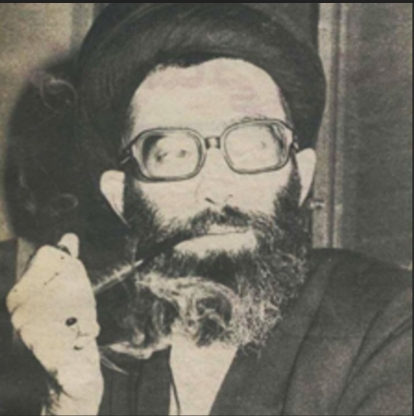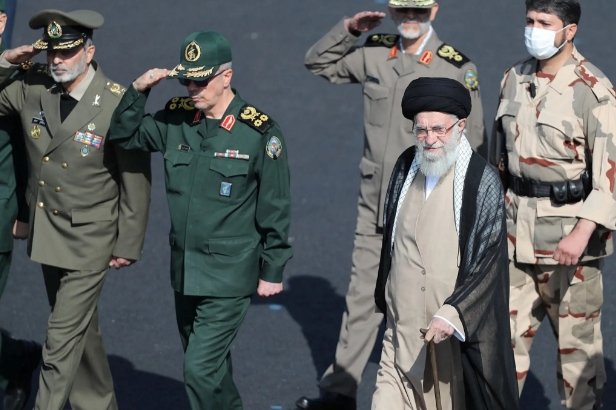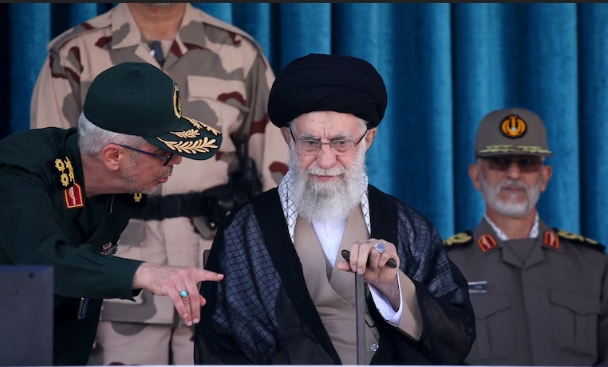Iran Supreme leader Ayatollah Ali Khamenei had recently opened a twitter account, which has been suspended after just two posts. Here’s why!
Supreme leader Ayotollah Ali khamenei was using foul language against conflicting matters. The first Twitter post came in Hebrew language on Saturday, reading in the name of Allah the merciful. The second post came on Sunday reading this joinist regiment made a mistake and aired in its calculation regarding Iran we will make it understand what power ability initiative and desire the iranians nation has. both posts came after Israel strikes on iran’s military targets last week.

Supreme leader Ayatollah Ali Khamenei Early Life and Education
Supreme leader Ayatollah Ali Khamenei journey to becoming Iran’s Supreme Leader began in his hometown of Mashhad, where he undertook religious studies with esteemed Shiite scholars, including Ayatollah Khomeini. During the 1960s and early 1970s, Khamenei was deeply involved in political activism against the Shah’s regime, which led to multiple imprisonments. His perseverance in the face of such challenges earned him a respected place within Iran’s revolutionary landscape, eventually making him a central figure in establishing the Islamic Republic after the 1979 Revolution.
Rise to Supreme Leader

Supreme leader Ayatollah Ali Khamenei rise to the position of Supreme Leader was anything but straightforward. he was not initially seen as a likely successor due to his clerical rank. However, a series of strategic moves, largely orchestrated by political ally and then-Parliament Speaker Ali Akbar Hashemi Rafsanjani, paved the way for his appointment. The Iranian Constitution was amended, allowing someone of Khamenei’s rank to assume leadership, a move seen as a bold consolidation of power to prevent fragmentation within the ruling elite.
Upon his appointment, Khamenei’s title was elevated to “Ayatollah,” and he began his tenure by centralizing authority. This position provided him control over key institutions, from the military to the judiciary. His power was further solidified through his alliances with bodies like the Islamic Revolutionary Guard Corps (IRGC), which became instrumental in enforcing regime policies.
Khamenei’s Political Influence
Supreme leader Ayatollah Ali Khamenei’s approach to governance has frequently led to policies that restrict reformist movements, while favoring conservative agendas. This dynamic was notably present during the presidencies of Mohammad Khatami and Mahmoud Ahmadinejad, with Khamenei acting as a conservative counterbalance to any movements that might introduce Western-style reforms.
The Guardian Council’s Role in Supporting Khamenei’s Vision

The guardian council is becoming a crucial tool in shaping irans political landscape some believe that this council is composed of 12 members who are responsible for screening electoral candidates also supervising elections and reviewing legislation passed by the Iranian parliaments there are 6 members in Islamic juris and 6 members are directly appointed by Eminem while the remaining 6 legal scholars are chosen by the chief justice and the chief justice is appointed by Supreme leader Ayatollah Ali Khamenei this structure shows that the guardian council is always loyal to supreme leader allowing to maintain control over iran’s political directions.
The Guardian Council has repeatedly disqualified candidates who challenge hardline positions, often excluding reformist figures. During the 2021 presidential election, for example, 585 candidates were disqualified, leaving only seven to compete. The council’s ability to veto laws passed by the Majlis further reinforces Khamenei’s influence over legislative processes. Ahmad Jannati, a long-standing loyalist to Khamenei, has held the council’s secretary position since 1992, underscoring the continuity of Khamenei’s influence through carefully selected allies.
Khamenei’s Near-Fatal Assassination Attempt and Its Impact

In 1981 a bomb attack was organised by anti-clerical group forgan. This was an assassination attempt on Supreme leader Ayatollah Ali Khamenei which injured him while he was delivering speech at the mosque. His right arm got permanently paralyzed in the bomb attack, alongside with his vocal and hearing impairments. Despite this massive attack his political resilience stayed strong. His image was empowered to commit to the islamic ideas. Two months after the attack he was declared the president of Iran.
Khamenei’s experience with violence and threats against his life shaped his leadership style. This background may have influenced his reliance on security forces, particularly the IRGC, to protect both himself and the regime. His experiences led to a firm stance against opposition groups and reinforced his view of Iran’s need for security and resilience.
Recent Developments and International Relations
Supreme leader Ayatollah Ali Khamenei stance on Israel has become increasingly vocal in recent years. In late October 2024, one of Khamenei’s new accounts on the social media platform X was suspended after it posted messages in Hebrew. This incident, against the backdrop of rising tensions between Israel and Iran, underscored Supreme leader Ayatollah Ali Khamenei role in positioning Iran as a prominent critic of Israel’s policies in the region.
Consolidating Power in Iran’s Complex Political Landscape

His leadership style is defining the strategic alliances and the Iran’s strict political control over its institutions. This shows their commitment to maintain Iran’s revolutionary ideas. Every new development is a reinforcement of authority, from the guardian council to military. Through various institutions. Supremem leader Ayotollah Ali khamenei has established a conservative political environment.
Conclusion
Supreme Leader Ayatollah Ali Khamenei has an unparallel influence on iran’s political structure and foreign policy. he has made his way very carefully into the depths of power which solidifies his place as one of the most powerfull leader. With a strong conservative approach, Khamenei’s leadership has steered Iran through years of domestic and international challenges, shaping a political environment deeply rooted in Islamic principles and nationalistic ideals.
Also read- The Washington Post Won’t Pick Sides in 2024: What Does This Mean for Voters?